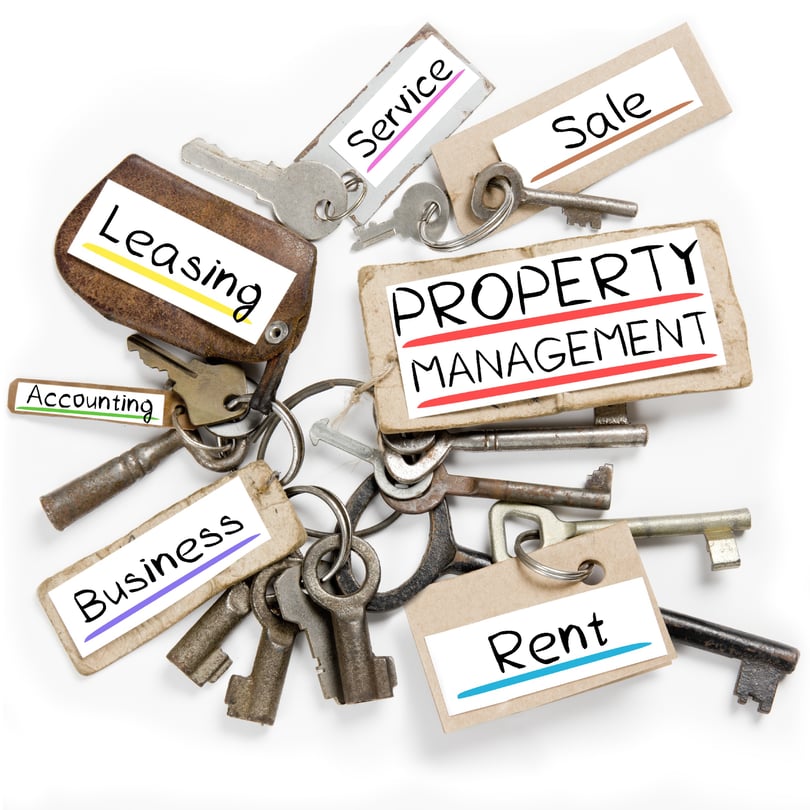The Simple Guide to Property Management for Beginners

Getting into property management can be a challenge. There are a lot of rules to learn and challenges to overcome in both commercial and residential property management. Overcoming these property management challenges isn’t always easy—many first-time property managers (PMs) end up making critical mistakes that cost them a lot of time and money.
Two examples of potential hazards faced by new property managers are:
- Legal Disputes with Renters. There may be situations where a first-time property manager/landlord might be violating a code or breaking a law they didn’t even know of—leading to having to fight charges in court. Even without an actual violation, disputes with renters can escalate into legal battles where managers need to retain a lawyer.
- Losing Money on Rental Property Management. Many first-time landlords/property managers underestimate their actual costs and wind up losing money on a property. Or, they may have difficulty filling vacancies which leads to a steady drain without income.
To help spare first-time property managers from having to deal with these problems, here is a simplified guide to property management.
Guide to Property Management For Beginners
This guide is condensed to provide basic information to new property managers—so it won’t cover all of the intricacies of residential and commercial property management.
#1) Get to Know Your Market BEFORE Buying a Property
Here’s a scenario that some first-time property managers have encountered: After days, weeks, or even months of looking for a good deal on a property, the entrepreneur has found a great house or apartment building for a fantastically low price. They rush to buy it before others can snap it up, barely caring about the specific features of the building.
However, the property, once acquired, is impossible to fill and it becomes a drain on the property manager’s resources. Had the aspiring residential property management expert done their due diligence and investigated both the property and the market it was in, they would have discovered that while affordable, the property was simply not a good match for the market it was in.
Finding a good property that is aligned with the market it’s found in is one of the easiest property management challenges to overlook. Before even looking at individual properties, it’s important to collect key market data such as:
- Local Employment Statistics. To pay rent, people need to have steady employment. Areas with high unemployment and few opportunities for stable, high-paying work won’t support sizable rents.
- Average Household Size. How big are families in the area? Does the population consist mostly of unattached singles, “nuclear” families of two parents and kids, or extended families? This will drastically affect what kind of residences will be the most desirable to renters. For example, a multifamily property with two or three bedrooms will often do well in regions where families are more common, while studio apartments are often better for areas with a lot of singles (such as near college campuses).
- Rental Market Rates. How much is the average rent in the area? If the average for rent is too low, then it may be hard to attract budget-conscious renters away from more cost-competitive units without cutting into profits.
- Occupancy Rates. How many rental units in the given area are vacant? If occupancy rates for long-term rental housing are low, then there may be an issue in the area preventing renters from moving in. This can be a warning sign to avoid a particular market.
#2) Learn the Local Laws Before Becoming a Property Manager
Regulations at the state and even the municipal level can quickly become one of the biggest property management challenges that PMs will ever encounter. Even experienced property managers can violate a previously-unknown rule or regulation—especially when they’re migrating to a new market.
Property management software provider Propertyware recommends that new property managers, “Know the laws around rental property management” as one of their primary pieces of advice.
There are a few ways for property managers to get to know property management rules and local laws:
- Visit state and municipal sites containing property management regulations;
- Consult with a property management attorney to get an explanation of specific guidelines; and
- Check with local property management or homeowners’ association groups to collect information.
Of these options, the second is often the most efficient, as a lawyer specializing in residential or commercial property management will most likely have extensive knowledge of the laws PMs must follow.
#3) Get to Know Your Property Management Metrics
Like with any business or investment, it’s important for property managers to have a thorough understanding of their key performance indicators (KPIs) if they’re going to achieve reliable long-term success. Some examples of key property management metrics to track include:
- Occupancy Rates. Especially in multifamily property management, having a solid grasp of how many units are currently occupied vs the total available is important. Being able to compare this property management metric to the wider market scope can help establish overall performance. Property managers want to keep this number as close to 100% as possible.
- Property Maintenance Costs. Property maintenance is a necessary expense in property management. Keeping track of spending on property maintenance, as well as which maintenance issues are the most common, is important for accurately gauging a property’s profitability (and for identifying potential issues).
- Renter Turnover. How many renters decide to leave at the end of their lease (or worse, before the lease is up) each quarter or year? While some renter turnover (a.k.a. renter churn) is inevitable as their personal life situations change, high turnover rates may indicate a problem. Considering how vacancies drain the bottom line for any property manager, finding the source of the problem is vital.
Keeping track of property management metrics such as these can help uncover potential issues—such as a property consuming more in maintenance costs than it generates in revenue.
Improve Your Property Management Processes
Getting behind on work orders? Turns, punch lists, and renovations taking too long? When your maintenance techs can’t get it done, HOMEE has your back. It’s like having an army of maintenance pros on call 24/7. Contact us to learn how to make HOMEE your ultimate backup plan for when maintenance requests get backed up.




